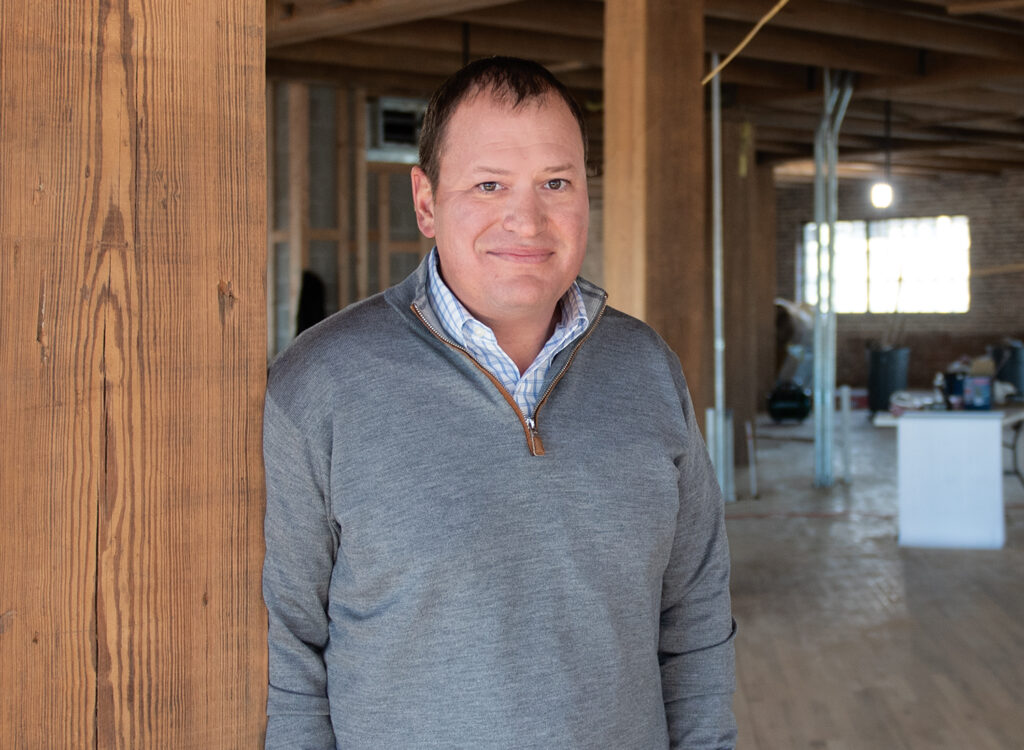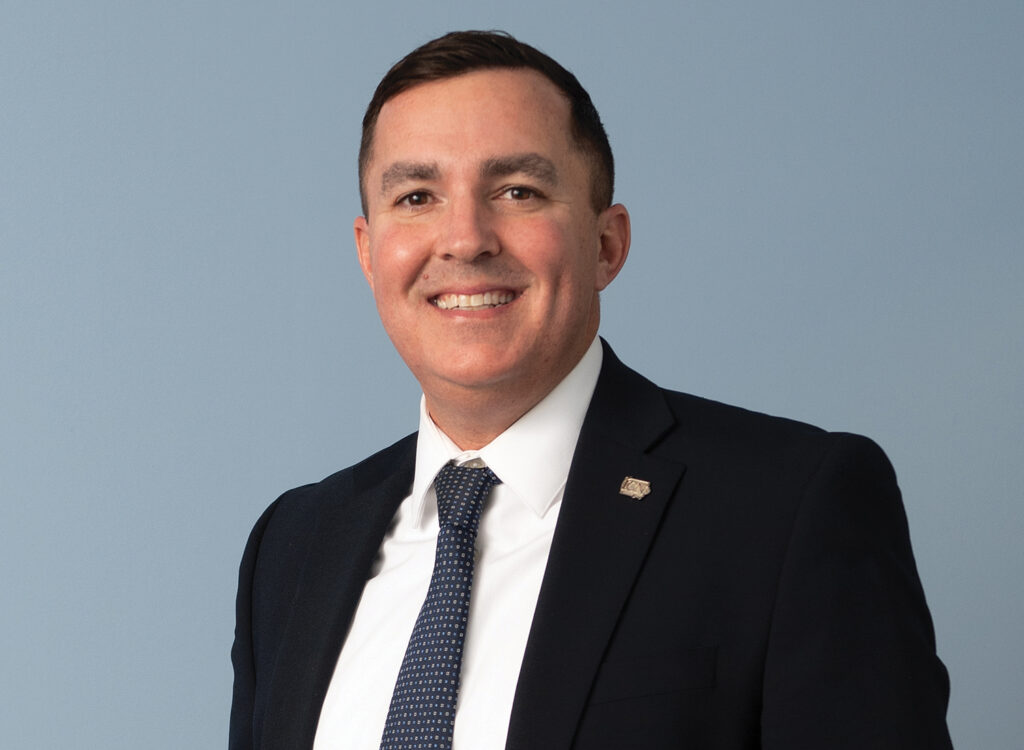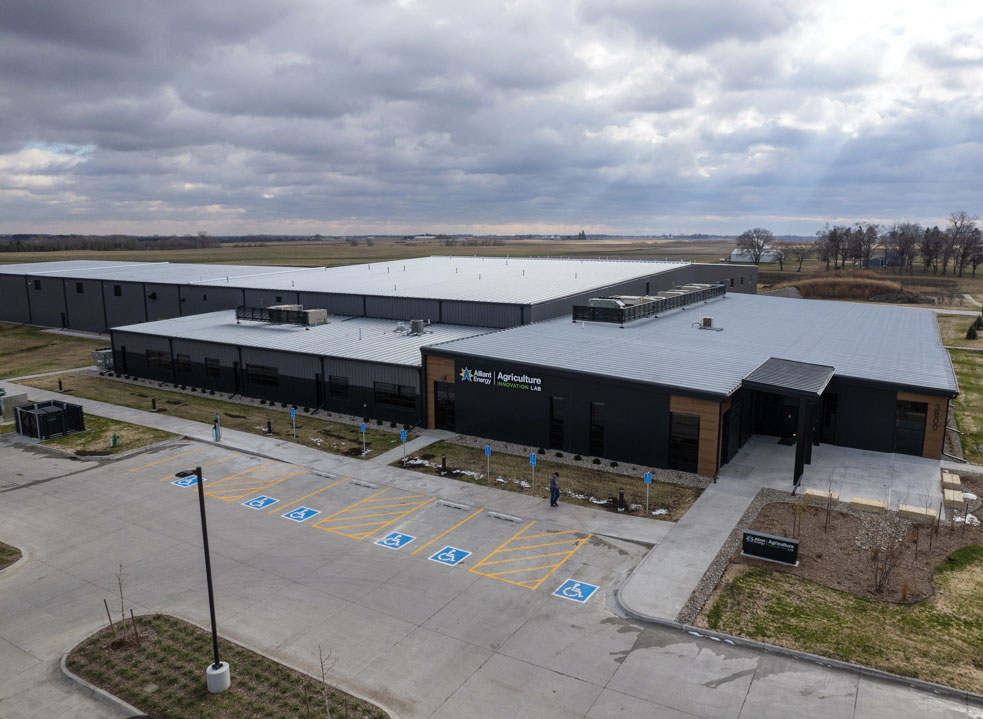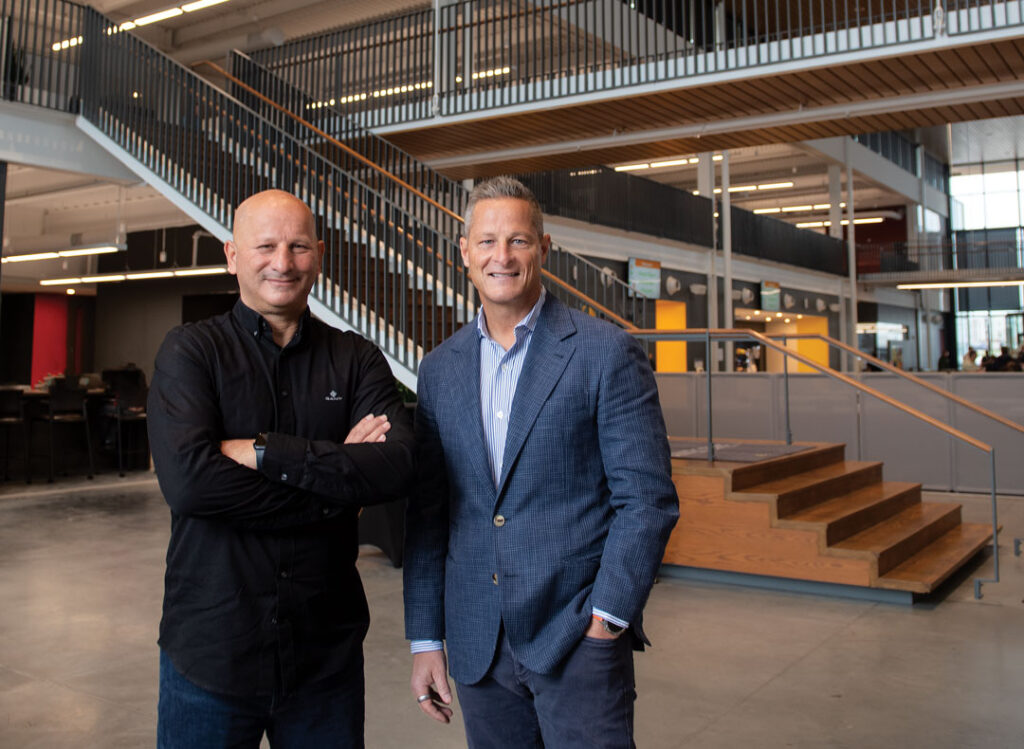A Closer Look: Christina Murphy
General manager, West Des Moines Water Works

Christina Murphy grew up in the Missouri River town of St. Charles, Mo.
With the Mississippi River also nearby, Murphy’s family spent countless weekends and holidays on the water, boating, swimming and fishing.
“My love of water started very young,” said Murphy, who in April was named general manager of West Des Moines Water Works. “Water has always been a part of me; I think it will be forever.”
Murphy, 39, studied biological engineering with a soil and water emphasis at the University of Missouri-Columbia. She was an engineer intern with in Missouri offices of the U.S. Department of Agriculture’s Natural Resources Conservation Service while attending college. After receiving her master’s degree in 2004, the USDA moved her to its Des Moines office.
The job had numerous responsibilities including developing preliminary designs and cost estimates for the construction of an 800-acre water supply reservoir in Clarke County; completing preliminary designs for possible water supply reservoir sites in Ida County; and assessing damage to drainage systems in New Orleans after Hurricane Katrina hit the area in 2005.
“We take water for granted in this country,” Murphy said. “We turn on the tap and the water comes out. We don’t really think about all that it takes to make that happen.” In early 2007, Murphy became the assistant director of the city of Ames’ Water and Pollution Control Department.
She was in the position for nearly two years before leaving for West Lafayette, Ind., and Purdue University, where her husband, Patrick, had been hired.
The family stayed in Indiana for about three years before being lured back to Iowa. In June 2014, the city of Ames was looking for someone to fill Murphy’s old job and she was rehired.
Murphy implemented the capital improvements plan for a 15 million-gallon-per-day lime softening water treatment plant; she worked on the development of three new wells; she oversaw the conversion to automated meter reading; and she helped prepare the utility’s $8 million annual operating budget and five-year rate projections.
That job prepared her for the next phase of her career – managing a large and growing water utility.
“I always thought, at some point, I would move to that next level; I didn’t really know when, and honestly, I thought it would be later,” said Murphy, who began her new job June 10.
Murphy, whose salary is $138,000 annually, oversees the utility’s $12.5 million budget and $10 million capital improvement plan. The utility, with more than 25,000 customers, has 34 employees.
We talked to Murphy about her journey and what she’s learned in the two months she’s been at West Des Moines Water Works.
Why did you decide to apply for the job as West Des Moines Water Works’ general manager?
West Des Moines is a growing, vibrant community. And I had heard great things about their staff. And there were only so many places that are appealing, and West Des Moines was one of them.
What was the hiring process like?
They used an outside consultant, Francis and Associates, and fortunately I knew the previous general manager and that was helpful. I met with the consultant and then a couple members of the board. Eventually, I was brought in to meet the full board and the staff.
That final step sealed it for me. I knew if I was hired, I’d have a supportive board behind me and a great, dedicated staff. It doesn’t get much more appealing than that for someone who is moving in a new position. There’s challenges – making sure that we’re keeping up with the growing community – but that’s an exciting challenge to me.
What’s it been like to get acclimated to your new job?
I’m familiar with lime softening, but every plant does it differently. And so coming up to speed on how we treat the water. And then it’s a very complex distribution system, where we are able to push water to different pressure zones. So that is very exciting to me.
I am in the process of meeting with every single employee – getting to know them, understand what we do really well at the waterworks, and where do people see our challenges are at.
Why do you think it’s important to meet with every employee?
I think it’s important that you connect with all the employees – that they don’t feel like the general manager is unreachable and that their concerns are important. Also, I think you get a sense of the true culture of a work group when you meet individually [with employees].
What are the challenges that are going to face West Des Moines Water Works?
West Des Moines is growing. And it’s always a challenge when you have a growing community to stay ahead of the needs of that community. So you need to make sure we have enough source water available, and that we have enough treated capacity. And then also that we put the infrastructure in place to get water everywhere that we need it, and then still do that with the dollars that we have and prioritizing what that looks like. And then looking forward, how do we make that happen. Those are big challenges for the utility – just making sure that we’re taking care of our customers.
West Des Moines has grown westward, and now its growing to the south – on the other side of the Raccoon River. How do you get water there?
You can pump water over the river. There’s infrastructure that went into place; there’s a 24-inch main that’s in the process of construction. There are several booster stations under construction right now that will help us make sure we can serve to the south, and we’ve acquired land for a future elevated tower, so when that time comes, we’re ready.
What interesting statistics have you learned about West Des Moines Water Works?
We have 17 alluvial wells and four deep wells.
What’s an alluvial well?
An alluvial well is just a shallow well that you find generally near river source. They tend to be 50 to 100 feet deep, sometimes a little deeper. Jordan wells are quite a bit deeper – in the neighborhood of 2,000 feet deep.
The water quality is a little different between the two types of wells. Alluvial wells are more susceptible to drought; with deeper wells you tend to have more stable available [water] source but they also tend to have a little bit different water quality characteristics that weren’t as favorable.
Other water works statistics you’ve learned?
We have five elevated towers, and one that’s a shared resource among more than one city. We treat, on average a year, about a little over 7 million gallons a day and we can have a little over 13 million a day, especially in the summer when it’s dry…
It’s quite a swing in demand that is needed of us, so as a water utility, you have to prepare to meet the highest demand. It’s not the everyday usage, it’s that peaking demand that drives a utility to look for more water.
What are you passionate about?
I’m pretty passionate about early childhood literacy – getting our children off to a great start so that they can be successful. And obviously, as a female engineer, I’m big into STEM. How do we support getting more girls in science and technology fields? I try and do what I can to support that.
What have you done?
I’ve talked to [students in] classrooms … I really enjoy the outreach to schools. One group I met with – there were so many girls in that group. It was just opening the door for them about what they can do.
What did your children think about your new job?
I wasn’t sure how our kids would react to the potential change. My daughter, Reagan, knew by the time I was completing the final interviewing stages that I was considering a different job. I will always remember us lying in her bed finishing up a story before bedtime and she asked me if I had heard whether I got the job or not. I told her I did and she punched her fist in the air, “Yes! Great job, Mommy!”








